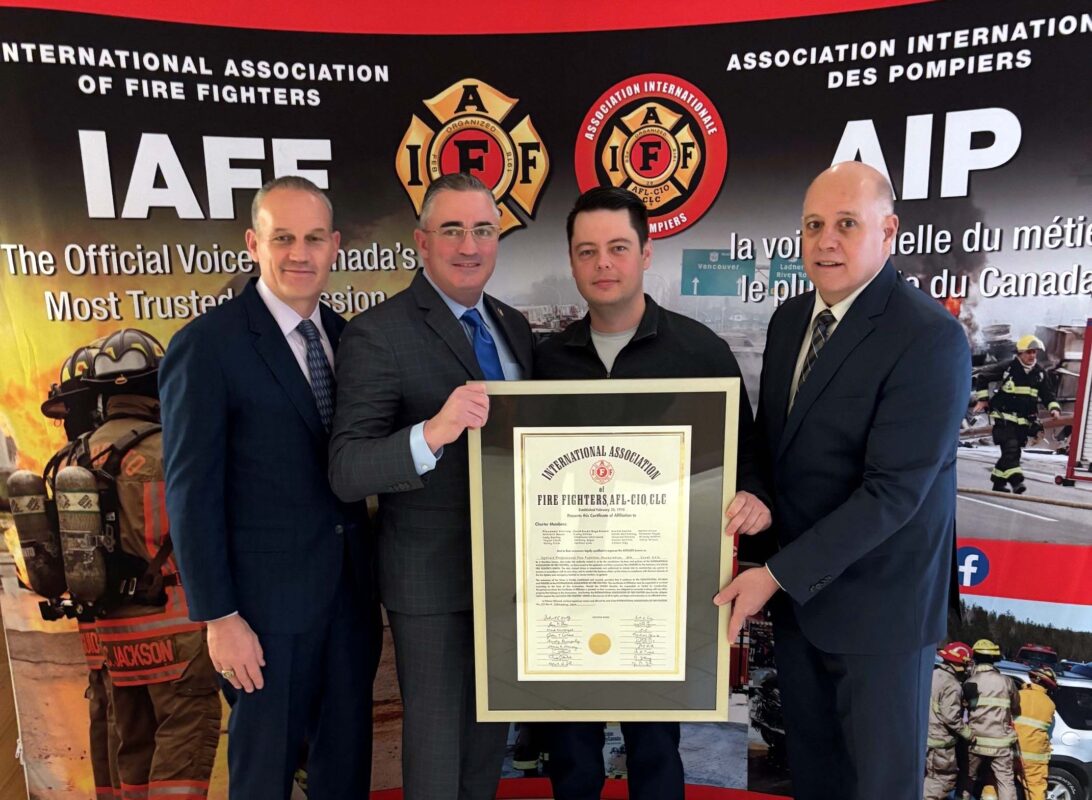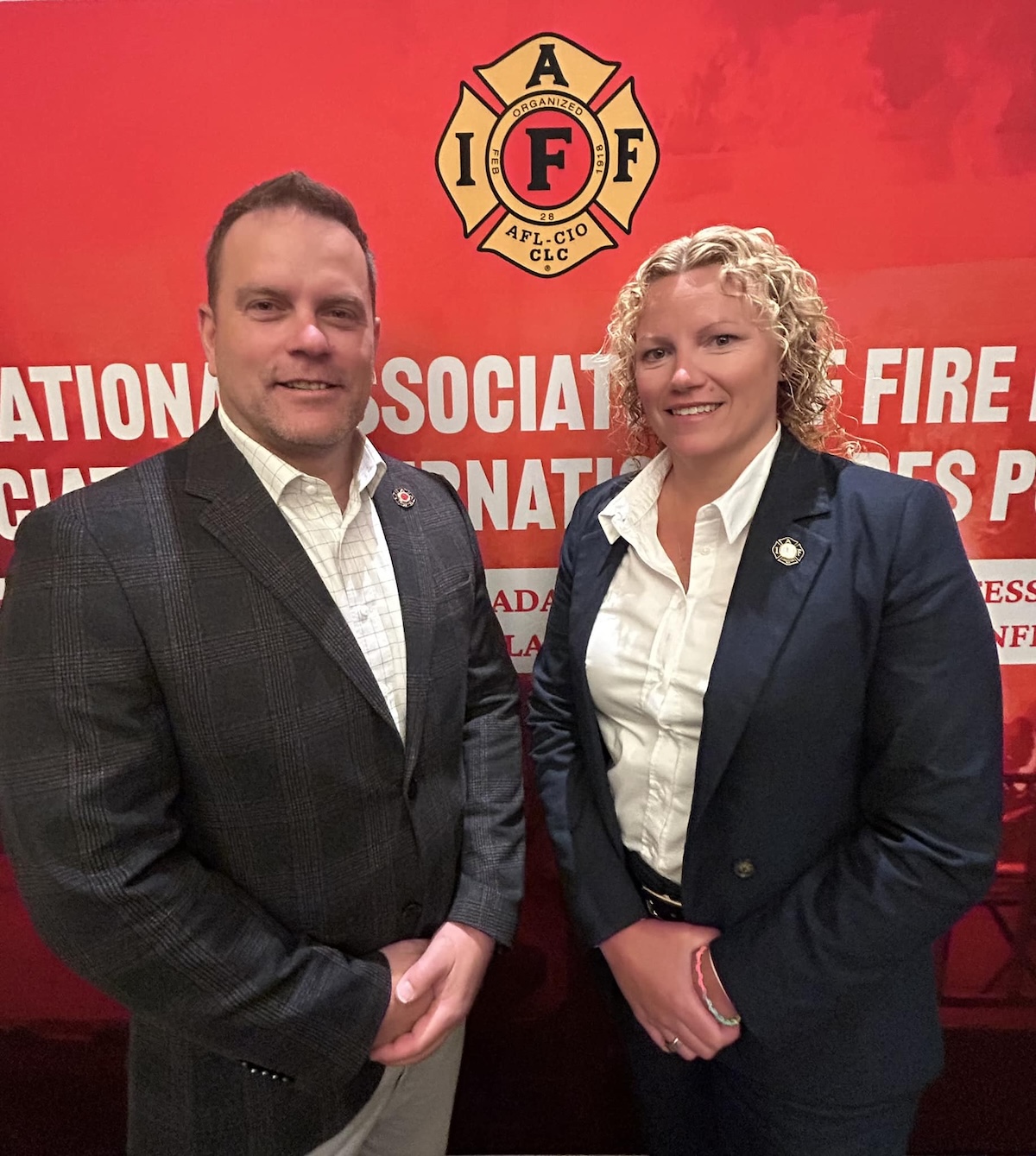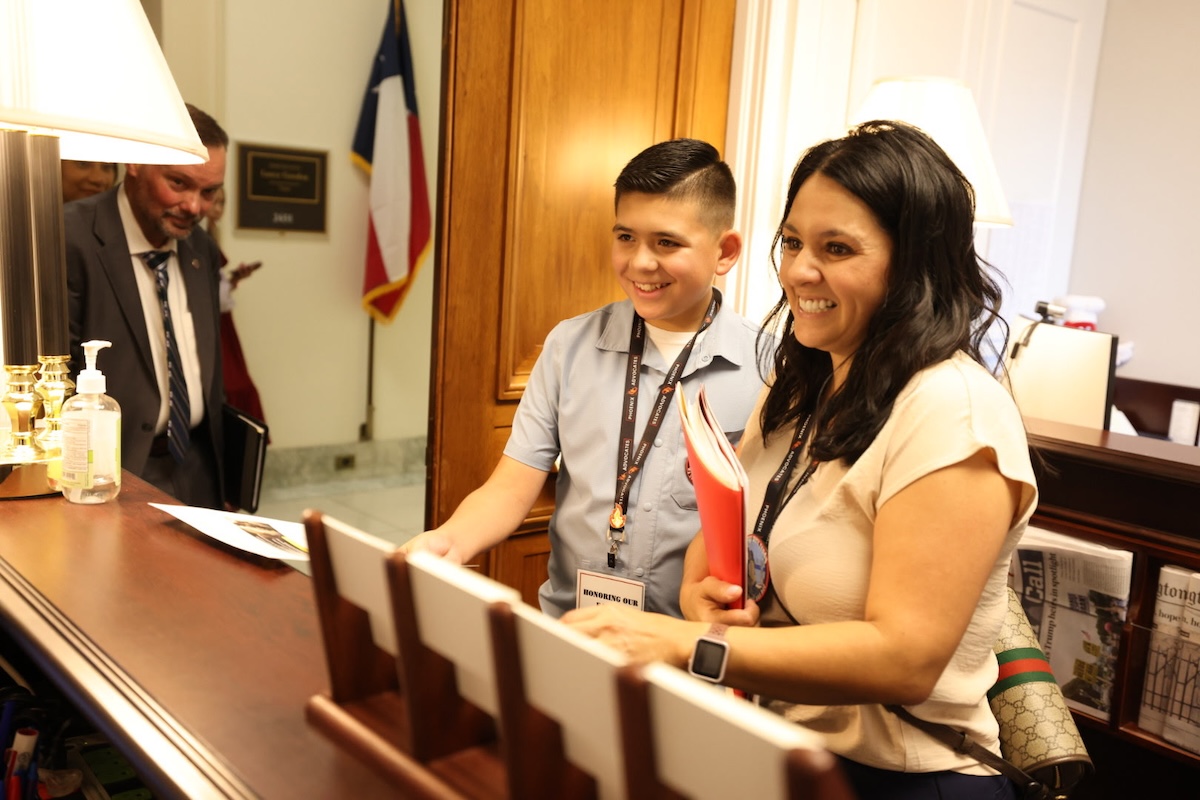The IAFF is welcoming 20 new members in the Arctic Canadian city of Iqaluit, Nunavut who have affiliated as they strive to improve fire fighter health and safety and public safety in their community.
The IAFF now has locals in all 13 provinces and territories, a welcome milestone that continues a trend of steady growth for the union in Canada.
The 20 Iqaluit members join the IAFF with associate status, meaning the Public Service Alliance of Canada (PSAC) will continue to hold their bargaining rights. The Iqaluit fire fighters are joining the IAFF to access key services specific to their profession in the fly-in Baffin Island community of just under 10,000 residents.
Iqaluit Local 5473 President Alex Storring said the city’s fire fighters had sought IAFF affiliation for several years and were pleased with the option of associate membership, which recently allowed it to move forward following a unanimous vote from the membership.
He is now looking forward to tapping into IAFF services such as training, mental health resources and technical services such as GIS analysis.
The Iqaluit fire fighters staff one fire station and provide ambulance-based EMS in their community. They average about 4,000 calls per year, 3,500 of which are medical emergencies. With five members on duty and a minimum strength of three, and no mutual aid available, the city relies on a lot of callbacks.
“It keeps us terribly busy,” Storring said, adding the city is open to increasing fire department resources and capabilities, “but the more resources we can show them as to why it’s needed, it will go a long way.”
IAFF 13th District Vice President Fred LeBlanc, who organized the local, said he was pleased to welcome the Iqaluit fire fighters and thankful to PSAC for agreeing to the associate affiliation, with the idea that two unions can complement each other in terms of the services provided.
“I was very pleased that we were able to find a way to secure affiliation, because it’s important that we have that ability to support each other in all parts of the country,” LeBlanc said.
“There are some very specific fire and EMS operational supports the IAFF can provide to Iqaluit” he added, noting that a GIS analysis, for example, would help with a station relocation study currently underway.
LeBlanc added that IAFF resources can hopefully improve presumptive disease coverage in the territory, which currently does not cover post-traumatic stress injury, and covers 14 cancers compared to the current national benchmark of 22 cancers in Saskatchewan.
He is hoping to travel to the community in the coming months to meet with the fire fighters and other stakeholders in the city to further explore how the IAFF can benefit public and fire fighter safety there.
The IAFF now has 27,805 active members in 197 locals across Canada and 1,671 active-retired members.
Nunavut, which includes Canada’s eastern Arctic and the country’s most northern reaches, was part of the Northwest Territories until became a territory of its own on April 1, 1999.



